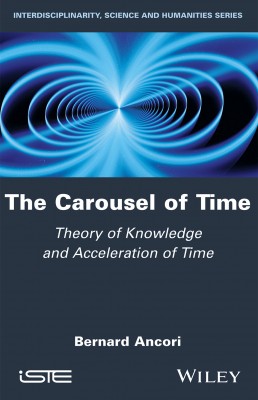
Based around the image of a carousel, this book uses epistemological theory to tackle the paradoxical acceleration and deceleration of time that is experienced by many. The consequence of this paradox is the observance of the past, present and future coinciding, where acceleration is combined with perfect immobility.
The Carousel of Time proposes a model that focuses on a complex network of individual actors, and their relation to the analysis, structure and evolution of our socio-cognitive space–time. The first part of the book, “Foundations”, presents the key bases of this model, as well as the notions that must be understood and integrated. The book then analyzes the concept of “Space”, defining the parameters of the network’s boundaries, and finishes with an exploration of “Time”. This third part links the temporality of the network to its spatial characteristics and studies its evolution.
Part 1. Foundations
1. Information, Communication and Learning.
2. Self-organization and Natural Complexity.
3. Human Memory as a Self-organized Natural System.
4. Hypotheses Linked to the Model.
Part 2. Space
5. Scope, Dimensions, Measurements and Mobilizations.
6. Provisional Regionalization and Final Homogenization.
Part 3. Time
7. Propensities to Communicate, the Specious Present and Time as Such, the Point of View from Everywhere and the Ancestrality’s Paradox.
8. Déjà-vu and the Specious Present.
9. The Acceleration of Time, Presentism and Entropy.
10. Temporal Disruptions.
Bernard Ancori is Professor Emeritus of Epistemology and History of Science at the University of Strasbourg, and Researcher at The Henri Poincaré Archives – Philosophy and Research on Science and Technology, France.